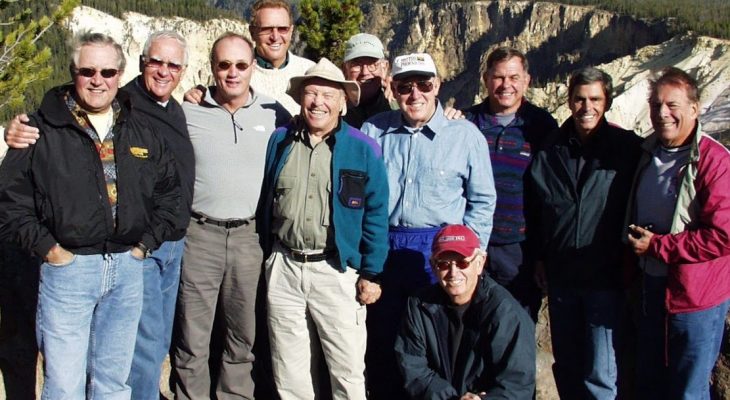The founding and building of Bar‑S produced many valuable lessons involving risk, struggle, and reward; and they made a deep imprint on Tim’s character and sense of values. Among them were: that leadership at all levels of the organization is the essential factor that determines the outcome of any battle; that will power, perseverance, positivism, and enthusiasm will overcome most obstacles; that leaders must be visible, confident, and communicate effectively to energize and motivate an organization; that widespread physical fitness produces better health, greater productivity, stronger workers, more discipline, and a tougher team; and that financial resources must be conserved to handle unforeseen crises.
While Tim appreciated the uniqueness of every life journey, he also saw universal lessons and values that seemed inherent to the entrepreneurial process. His experiences lead him to believe that entrepreneurs often develop and display extremely important and worthy characteristics even while pursuing economic self‑interest. These include vision, leadership, courage, decisiveness, competitiveness, honor, creativeness, perseverance, risk taking, self-reliance, industriousness, common sense, commitment, profit orientation, and willingness to undergo great sacrifice to achieve one’s dream. He further believed that these attitudes and values – tempered with a sense of community – must be nurtured and supported because they represent the backbone of strength and the source of energy behind this country’s enormous economic success.
Tim’s leadership was well recognized in the community, and he was elected to serve as President of the Harvard Business School Club of Arizona in 1980‑81; Chairman of the Arizona Chapter of YPO in 1981‑82; YPO Forum Moderator from 1984‑86 and 1988‑90; Chairman of Greater Phoenix Leadership in 1994‑95; and long‑term member of Executive Committee of the Board of Directors of the American Meat Institute. He was named an “Entrepreneurial Fellow” by the University of Arizona in 1991; selected as “Master Entrepreneur of the Year” for the southwest region of the country by the Entrepreneur of the Year Institute in 1992; voted “Supplier of the Year” by the Retail Grocers Association of Arizona in 1993; and recognized by Wesleyan University with a “Distinguished Alumnus Award” in 2009.
Tim also became active in public policy in order to give personal service to the community – to become involved in a cause that was larger than self-interest. In 1990, he founded the Fiscal Accountability and Reform Efforts (FARE) Committee and served as its Chairman from 1990-94. This organization developed a comprehensive long-term plan and action agenda to bring sound fiscal management to state government in Arizona, and actively publicized issues and lobbied for corrective legislation. Over time, these efforts had a significant impact in establishing conservative policies and financial strength in state government. From 1996-98 he served as Chairman of the Goldwater Institute, a conservative think tank focusing primarily on state of Arizona public policy matters. Through these positions, he became a recognized leading advocate of conservative issues and was frequently called upon to author articles, give speeches, and address various forms of media. He was meticulous in maintaining a statesmanlike posture by only advocating sound and conservative policies that represented “good government” versus any position that might directly or indirectly benefit him or Bar-S.
Tim’s involvement in public policy matters also reflected his concern that well-meaning “liberal” forces might destroy the economic environment and heritage that have made this nation great and provided such enormous opportunities for its people. Socialistic policies have intellectual appeal, but undermine the basic fabric of society and ethic that there is dignity in work; that nothing worthwhile comes without sacrifice; that personal performance matters; and that we are responsible for our own destiny. These tenants of rugged individualism have shaped the character of Americans for centuries and are fundamental to the strength of this nation. Further, he concluded that successful business people, especially entrepreneurs, who have firsthand experience with free enterprise and have directly benefited from it, must lead the fight to protect it.
